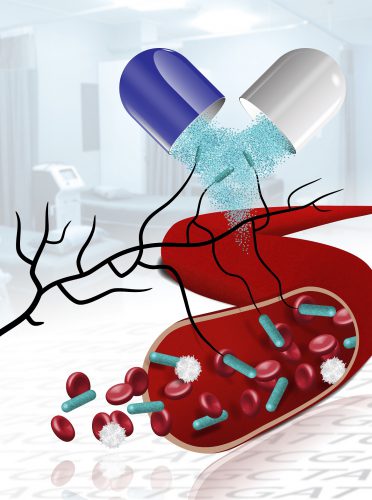Researchers at the Technion and their colleagues in the United States discovered that the administration of probiotics in intensive care units in hospitals can lead to blood infections, and in some cases the harm outweighs the benefit

Researchers at the Technion and Children's Hospital in Boston discovered that consuming probiotics can lead to blood infections. The research published in Nature Medicine is the result of a collaboration between Technion researchers Prof. Roi Kishoni and Dr. Idan Yelin and the research groups of Prof. Gregory Pribi and Prof. Thomas Sandura from Boston Children's Hospital. The research findings indicate that under certain circumstances, the risk associated with taking probiotics may exceed its benefit.
Probiotics are an accepted means of medical treatment, and their use in hospitals is steadily expanding as a means of preventing diarrhea, intestinal diseases and in some cases also against pneumonia, pancreatitis and sepsis (sepsis).
Now, as mentioned, it turns out that consumption of probiotic bacteria can lead to serious side effects. In the current study, the possibility that those bacteria find their way into the blood and cause a blood infection was investigated. The hypothesis that probiotics may cause such damages has been raised in the past, but so far no conclusive evidence for this causal relationship has been presented. Now, using advanced technologies of full genome mapping, researchers have shown that in some cases, the origin of the bacteria causing the infection is in the probiotic preparation given to the patient.
The study was based on data collected over 5 and a half years from the intensive care unit patients at Boston Children's Hospital. During that period, 22,174 patients were treated in the intensive care unit. 552 of them received probiotic capsules containing Lactobacillus rhamnosus bacteria from a subspecies called LGG as part of the treatment. As part of the study, a blood infection (Lactobacillus rhamnosus) was diagnosed in six patients - all from the same group that received probiotic treatment. Among the thousands of patients who did not receive probiotics, no similar infection was recorded.
In their article in Nature Medicine, the researchers provide evidence that the origin of the blood infection is indeed in the consumption of the probiotic bacteria. To prove that the bacteria causing the infection came from the probiotic preparation, the researchers relied on innovative genomic tools. In the Genomic Center at the Technion, the DNA sequence of the bacteria isolated from the infections was fully reconstructed alongside the DNA sequence of bacteria taken from capsules of the probiotic preparation. This is how it turned out that the bacteria in the blood are also of the LGG subspecies. Further analysis of the information found that it is not possible to genetically separate the lineages of bacteria found in the preparation and blood.
Furthermore, the limited genetic diversity found in the capsules was largely reproduced in isolates from the blood. In addition, in some of the aforementioned bacteria found in the blood, new mutations were discovered that were not detected in the bacteria in the capsule, including a mutation conferring resistance to antibiotics that was identified in isolation from one of the patients. In other words, in addition to the risk of infection, the consumption of probiotics also involves the development of antibiotic-resistant bacteria - one of the processes that impairs the effectiveness of medical treatments and endangers the patient.
The technical part of the research was supported by an ERC grant from the European Union, NIH and the Beutler Foundation.

One response
Perhaps it would be useful to state a disclaimer in such an article. This is still only a single study, and its conclusions are still far from becoming a medical recommendation. It is possible that in the future the medical recommendation will really be to avoid giving probiotics, but it is also very possible not. It depends on the criticism that will of course be on this study and on other studies.